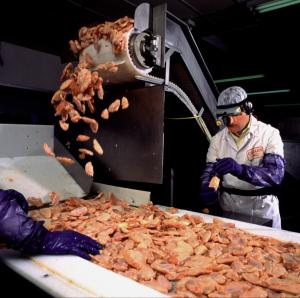US challenges China in chicken anti-dumping case

The United States has initiated the next step in the fight for better access to Chinese markets, by asking the World Trade Organization to look at Beijing’s duties on the billion-dollar chicken trade.
“China must play by the rules,” said US Trade Representative Ron Kirk, calling on the WTO to look into the one-year-old dispute – the first step toward possible sanctions.
US poultry industry response
In response the US poultry industry stated that it greatly appreciates the determination that Ambassador Kirk and his staff have shown to address this significant trade problem. The action being brought is a trade remedy case that challenges the method by which China determined that the product was allegedly sold as less than normal value, the National Chicken Council (NCC) and USA Poultry & Egg Export Council (USAPEEC) said in a joint statement.
The China case used “average cost of production” to determine normal value rather than using domestic US market prices for comparable sales as is customary in anti-dumping actions. The use of “average cost of production” reflects neither market realities nor the way in which companies in the industry commonly keep their accounts.
Methodology seriously flawed
The US poultry industry agrees that the Chinese methodology was seriously flawed and that the anti-dumping proceeding did not comply with international rules. The Chinese authorities also found that US poultry exports benefit from farm subsidies, such as support prices for corn and soybeans. The reality is that US poultry receives no government subsidies and does not benefit from any of the government crop programs.
In the statement by poultry industry representatives it was considered unfortunate that this dispute has to be addressed through the formal WTO process, but they believe that it is necessary that this incorrect methodology be challenged and that US trading rights guaranteed by WTO agreements be protected. The US industry also believes that this case will have direct implications for dumping cases that have previously been brought by other WTO Member countries that are also incorrectly based on an average cost of production methodology.
Two-way poultry trade
The US poultry industry has been cooperating with the Chinese industry and the Chinese government on other initiatives to improve conditions of two-way poultry trade that are unrelated to the issues being addressed in the case initiated. The industry’s commitment to those initiatives will continue and not be affected by the initiation of the WTO case.
Related websites:
USTR
NCC
USAPEEC













